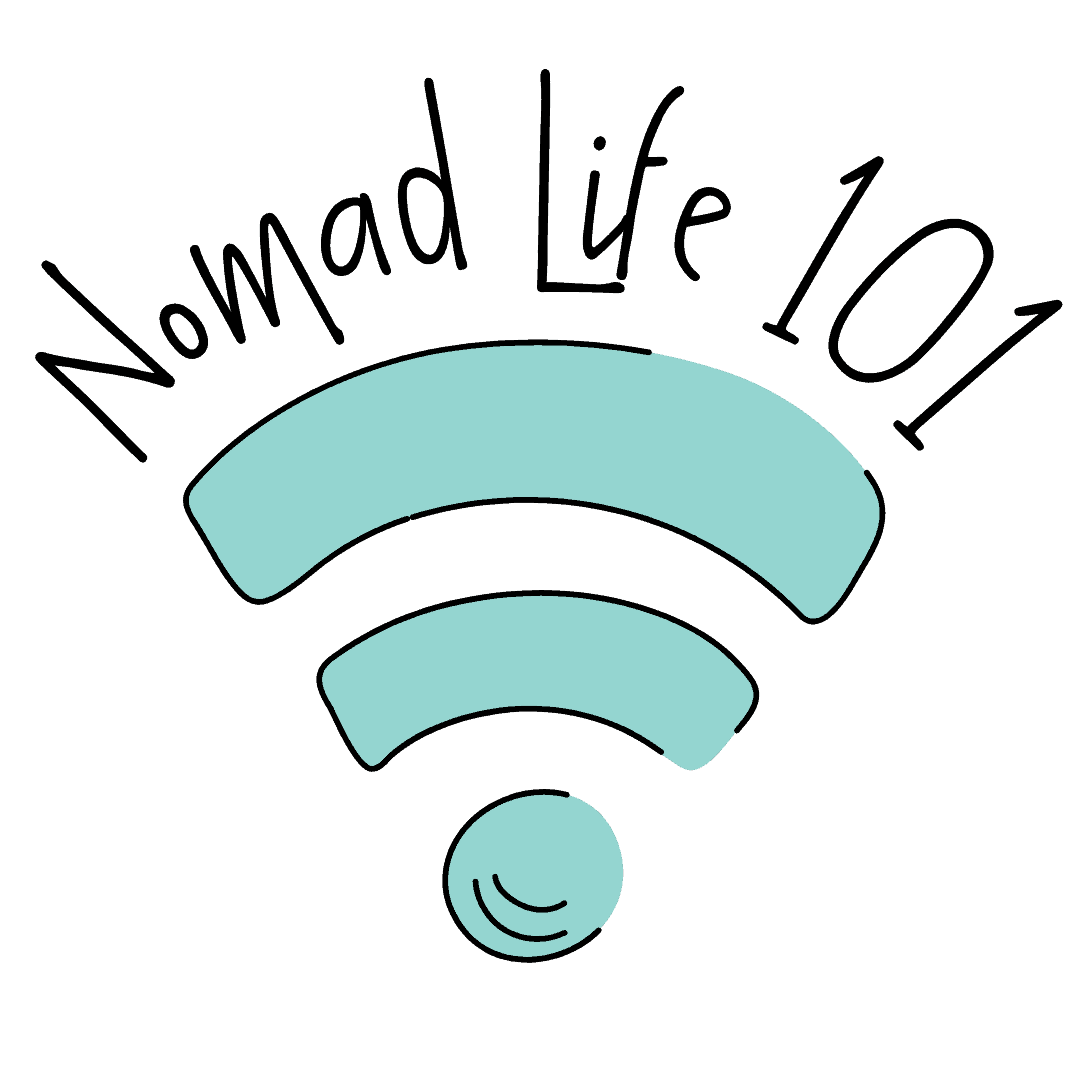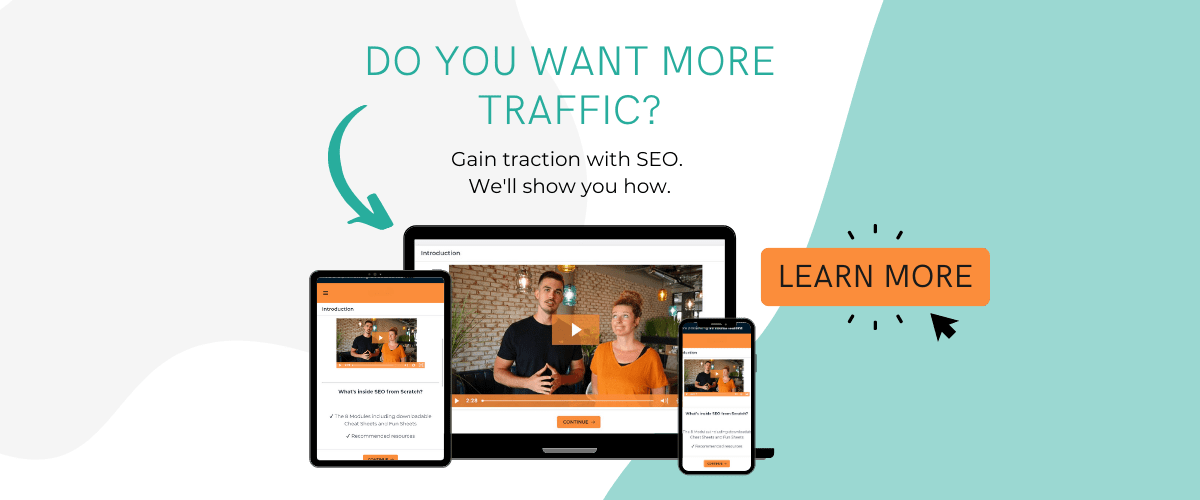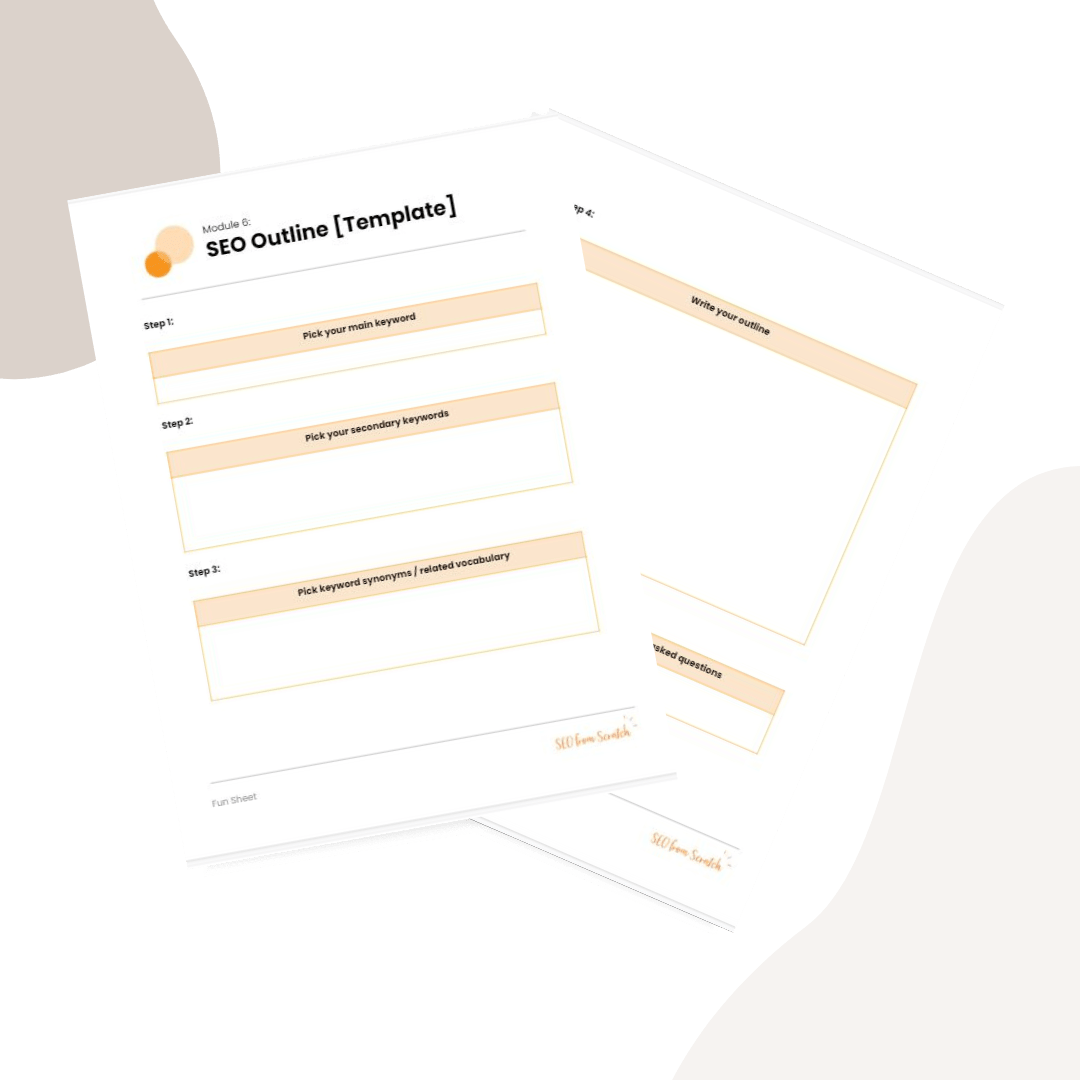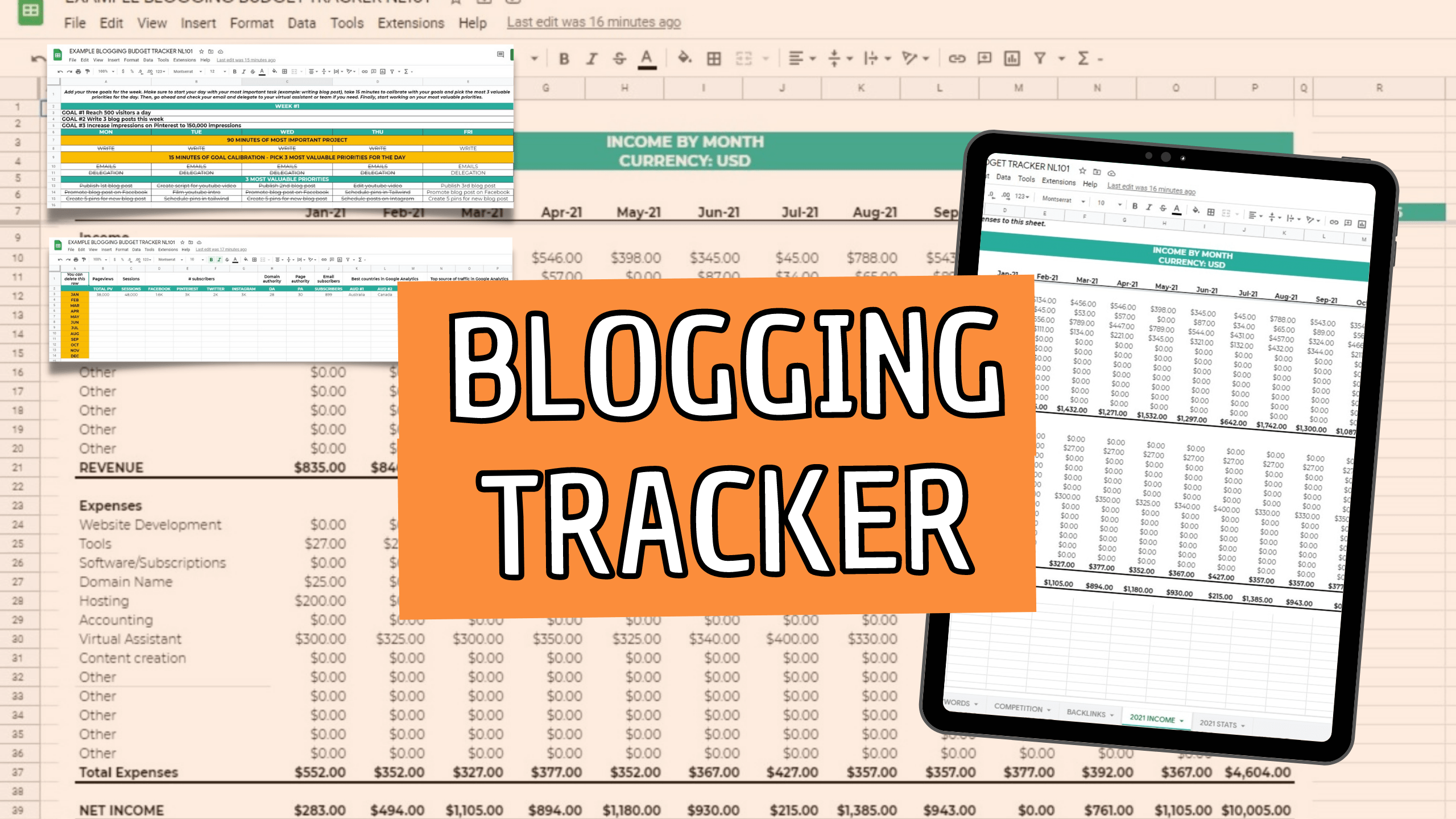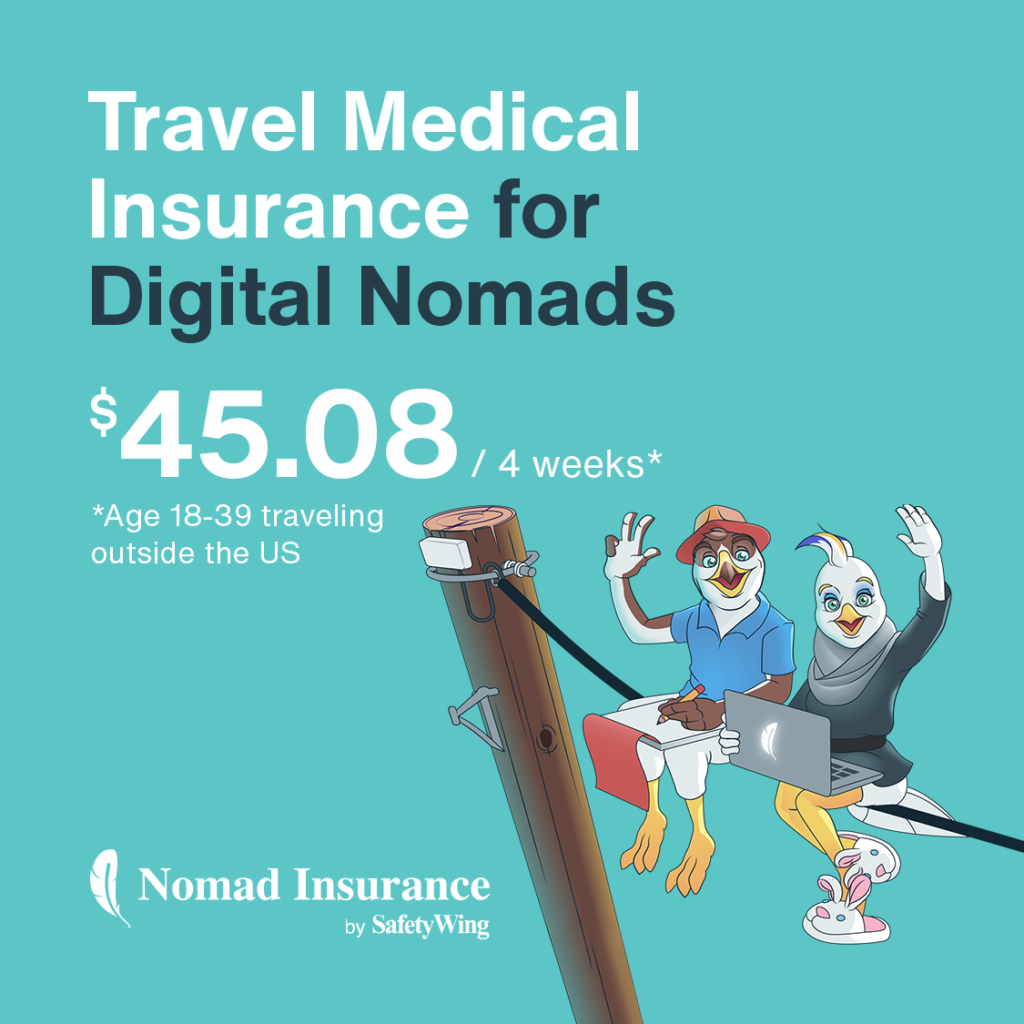If you’re still new at blogging, you may be making blogging mistakes without realizing it. I made lots of mistakes myself when I first started and it’s completely normal to make some. Blogging is a lot of work and you can’t know everything.
As you’re still a beginner blogger, you’ll learn as you go and likely realize the mistakes you make along the way.
It’s important to fix blogging mistakes as fast as possible because the longer you wait, the harder the fix will be.
Let me give you an example before we start.
I realized my blog was not self-hosted after a couple of months. I had no idea what a hosting plan was and why I should get one, but I saw that my blog had potential.
I quickly realized I wasn’t able to customize my website as I wanted, and that it was time to go self-hosted.
When I made the transition, I lost all my images and my subscribers because I didn’t back up my website the right way. I rushed into the transition, and I had to spend hours trying to fix my website.
You don’t need to wait to fix your blogging mistakes. In this post, I’ll share the common mistakes beginner bloggers make, and ways to fix them. I’ll also add examples so you can understand how costly the mistakes can be.
You’re using a free blogging platform
When starting a blog, many beginner bloggers get started on a free blogging platform instead of going self-hosted. Like in the example mentioned above, I made the same mistake.
The problem with free blogging platforms is that you can’t fully customize your website and you can’t really monetize it.
You’ll never be able to add ads to your blog. You may not be able to use affiliate marketing as a strategy and you’ll never have full control over your website.
What you should be doing
You should invest in a domain and a hosting plan so that you can create a website that you can own fully. You can learn more about the best web hosting platforms for blogs here.
Your blog niche is too broad
This is one of the most common blogging mistakes to avoid when you pick your niche. Now that there are so many blogs out there, you’ve got to find a way to stand out.
Having a “tech blog”, or a “lifestyle blog” won’t cut it anymore. You’ll need to pick a smaller niche in which you can become an expert.
For example, a lifestyle blog is too broad and generic. It’s harder to compete and stand out if your content is scattered across several categories like makeup, body positivity, clothing, recipes, fitness, etc.
It’s harder for your readers (and for Google) to understand your expertise if your content is all over the place.
What you should be doing
Find a focus and a specific niche within your industry to grow faster. You can always expand your content once your blog has more authority.
For example, when I started my main blog A Broken Backpack, it was all about long-term travel on a budget. As you can see it was specific. Over the years, my website gained authority in the travel niche, and I was able to expand my content and write about getaways, luxury travel, and living abroad.
Your blog niche is too competitive
Now, before you pick your blog niche, you should make sure you can actually compete. Usually, profitable niches are competitive, and it could take much longer before you start getting readers.
If you’re just starting out as a blogger, you should aim for a low competition niche to increase your chances of getting traffic fast.
For example, the finance niche is competitive, but finding a specific niche in the finance blogging industry could help you get faster results.
For example, “investing in your twenties” is less competitive than “investing”. While it’s less competitive, it also means you won’t get as much traffic to your blog.
But if you’re aiming for a popular niche, you may never get the traffic if the other players in your niche have more authority than you.
That said, in this situation, less is more.
What you should be doing
I’d recommend you do keyword research before you start a blog. That way, you can evaluate and predict your chances of ranking on search engines.
If you’ve already started your blog, you can still do keyword research and you may need to adjust your content pillars and strategy.
The goal will be to become more specific and more intentional about your content.
You don’t have a blog monetization strategy
When you pick a niche, you should have a monetization strategy. After all, your blog is a business and you can’t offer free content and spend hours creating blog posts without being able to support yourself.
It’s important to develop and work on monetization strategies as soon as possible so that you have a clear plan. You can read more about ways to make money blogging here.
What you should be doing
You should decide on ways to monetize your content. Will you display ads, focus on affiliate marketing, or sell your own products?
While you can have multiple income streams, you must have a clear idea of how you will make money blogging. Knowing how will help you create content that works with your monetization methods.
Your blog niche is not profitable
So, you found a niche you love and that you can compete for, and then, you realize the niche is not profitable. How would you know?
For example, if you’re doing affiliate marketing and you’re only reviewing products on Amazon, you could check the price ranges for the products you’d like to promote.
Then, look for the commissions in this market, as some markets give out bigger commissions than others.
If you realize that your commission is about $1 per sale, you’ll need an enormous amount of traffic and sales to make enough money to support yourself.
But, if you realize that your commission is about $50 per sale, you can see huge potential.
What you should be doing
Take a look at other blogs in your niche and see how they monetize their websites. Are they displaying ads, selling their own products, or using affiliate marketing as the main blog monetization? Then, come up with a plan and take a look at commission rates, pricing, etc.
If you’re going to spend months creating content, you need to make sure you can actually be profitable.
You don’t have a content strategy
This is one of the biggest mistakes new bloggers make, and it’s the easiest one to fix. Once you have a monetization plan, you can create content around it.
For example, if you’re going to use affiliate marketing to monetize your blog, make sure to write comparisons, buying guides, and product reviews. Without this type of content, it will be hard to make money with affiliate marketing.
Any good blog should have a mix of informational content and money-making content. That said, you can capture your audience at any stage of the sales funnel.
- Top of the funnel (search for information)
- Middle of the funnel (looking and comparing solutions)
- End of the funnel (the reader is buying)
What you should be doing
Brainstorm blog post ideas that capture your audience at any stage of the sales funnel related to your niche.
Once you have a list of ideas, do keyword research and write down all the keywords you could rank for. (This is an important step for SEO – which is the next blogging mistake on this list.)
If you have no interest in learning how to conduct keyword research, you could always outsource it or use our monthly keyword research services. Just get in touch to learn more.
You’re not using SEO strategies
Like you just read, SEO and keyword research is extremely important for the success of your blog. The only way you could avoid it is by relying on social media to get blog traffic.
That said, if you’re only using social media to generate traffic to your bog, you’re missing out because your readers are on Google every day – looking for answers to their questions.
SEO is a technique bloggers use to optimize their content for search engines. By targeting specific keywords in their content and putting these keywords in the right places, Google and any search engines can understand what the content is about.
On all my blogs, organic traffic is my #1 source of traffic. Organic traffic is traffic generated via search engines… organically.
When using SEO strategies, you’re building an automated way to get traffic long-term. I get daily traffic to blog posts that were written years ago, thanks to SEO.
What you should be doing
Start learning about SEO as soon as possible. If you want to learn the SEO strategies I use myself, consider joining SEO from Scratch – an online SEO course created specifically for bloggers. I created this course with my partner who is also an SEO specialist.
Alternatively, you can head to the SEO section and learn more on your own.
You’re not using a blog post outline
One of the important things I teach in SEO from Scratch is the importance of using a blog post outline to write a blog post. Every time, I write a new blog post, I do keyword research and write down all the keywords I wish to target.
Then, I create a blog post outline that can beat my competitors. I use a template to create my content. You can grab your free copy here.
When I use this template, I make sure to write content that is high quality and that covers all the angles I want to for. It makes it easier to stand out and I can write faster instead of staring at a blank page.
What you should be doing
Head here to grab our template. Alternatively, you can see how I create the whole outline for my blog post here. You can’t just write without a strategy because the web is a crowded place and in order to stand out, you need to be better than your competitors.
Your blog is too personal
I’ve said many times on Instagram, and I’ll say it again – nobody really cares about you. For example, if I’m on Google searching for “how to cover up pimples”, I surely don’t want to hear about your pimple journey, I want to get actionable tips and solutions to MY pimple problem.
If your blog is too personal, you probably won’t rank on search engines, and you won’t get blog traffic unless, of course, you’re a celebrity.
A blog should be about helping people, not about you.
What you should be doing
Do keyword research and you’ll quickly realize people are looking for solutions and answers to their problems. When they search for “should I start a blog” they aren’t searching for “how did Suzie start her blog”.
Give your audience what they need – not what you need or think they need.
Your blog doesn’t provide a good experience
So you got yourself a pretty blog design and you skipped the codes with tons of plugins. As a result, your website is slow. You got popups all over the place, and the user experience isn’t great.
Readers will leave and are not likely to return.
Make sure to offer a quality experience when readers are on your website. A great experience means no broken links, a secure experience, a fast website, and so on.
What you should be doing
Put yourself in your reader’s shoes. Do you know how to navigate your website? Can you reach the important sections easily? Is it fast enough? How are your core web vitals?
If you need help, ask a friend to browse your website and give you feedback.
If your website is slow, make sure to remove plugins and find ways to optimize your speed.
You have too many plugins
When starting a blog, we all hear about these amazing WordPress plugins that can help us get extra features and we all get excited. Sadly, not all plugins are needed and more importantly, less is more.
Every time you add a new plugin, you’re slowing down your website. Having fewer plugins is the best way to increase your website speed.
Usually, a plugin inserts a piece of code for you so you can get extra features, but some codes are easy to handle, so keep the important ones and remove the others.
What you should be doing
Take a look at our list of recommended WordPress plugins. Remove any unnecessary plugins you have or find lighter alternatives. After all, maybe you don’t need all these functionalities if you want to provide a good user experience.
Your domain name isn’t relevant to your niche
If you picked your domain name without thinking too much, you may be dealing with a domain that isn’t relevant at all to your niche. If your website is still new, you may want to consider changing your domain.
If your domain name is old, you may just need to stick with it.
What you should be doing
When picking a domain name, you should include keywords if you can. You can read all our tips on picking a catchy domain name here.
You should also think long-term. Will this domain name work long-term for you? If not, take time to brainstorm ideas to come up with something more suitable.
You’re not tracking your progress
It’s easy to get discouraged when your blog doesn’t hit your goals. If you haven’t started creating goals for your blog, you’re likely not tracking your performance either.
Tracking your progress and blog performance will help you create a long-term blogging vision. It will help you push through and find the motivation required to get some work done.
What you should be doing
You can grab my blogging tracker template for only $7. The tracker helps you track your blog income and expenses, stats, and performance. You can learn more about the blogging tracker here.
Alternatively, you can create your own system to track your blog performance over time.
You don’t have an email list
Collecting emails and subscribers early on is a great way to grow your blog. It gives you direct access to your audience and a chance to promote your new blog posts or products.
When you only rely on social media to connect with your followers, you’re at risk. Platforms like Facebook or Instagram own your social media account and can ban you or remove your account at any time.
Having a mailing list means you get a list of emails and subscribers and this belongs to you. If something goes wrong with your email provider, you can always download your list and transfer it to another provider.
What you should be doing
Join a mailing provider like Mailerlite or Convertkit (they both offer free plans if you’re just getting started) and start collecting emails. You can do so by creating freebies or special opt-in offers.
Alternatively, you can create a popup bar, or a subscription box on your homepage, sidebar, or footer.
You’re treating your blog as a hobby
Finally, the biggest mistake new bloggers do is to treat their blog as a hobby. I heard new bloggers say things like:
“Oh, I don’t want to make money with my blog, I just want to help…”
or
“I’m just blogging for fun.”
The thing is… blogging is a lot of work – and while it can be fun, wouldn’t it be better if you could make money doing something you love?
Treating your blog like a business instead of a hobby could help you blog full-time.
After all, if you are spending money on a domain, a hosting plan, and a theme – why wouldn’t you want to make your money back, and more?
What you should be doing
Start treating your blog like a business. Track your income and expenses, make a monetization plan and a content plan. Create goals for your blog and start working towards your vision.
If you’re not sure if blogging is the right thing for you, you can read more about the pros and cons of blogging here. But, if you want to get more serious about blogging, start thinking like a business owner.
Final Thoughts On Common Blogging Mistakes
Building a blog from scratch is a lot of work, but if you manage to build a business out of your blog and passion, it will be so rewarding.
My blogs gave me the freedom and flexibility I wanted, and I was able to learn lots of skills along the way.
It’s the best job I’ve ever had and I wish the same for you.
Want to learn more? Read one of the following blog posts:
